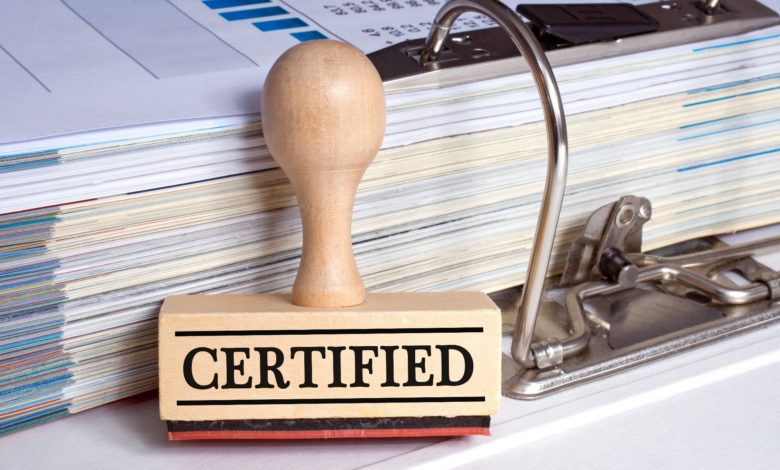
How to Become a Board-Certified Behavior Analyst
If you pursue an applied behavior analysis career, becoming a board-certified behavior specialist is one of the most critical steps.
It helps people know that you have met high standards, such as submitting to an extensive credentialing process, completing an educational program, meeting specific academic criteria, and contributing to the field through your professional activities. Here are the steps to become a board-certified behavior analyst.
What is a BCBA?
The Behavior Analyst Certification Board of Trustees (BACB) is the governing body for behavior analysts who have completed an accredited program and passed the Behavior Analyst Certification Examination (BACExam).
How does BCBA certification work?
If you want to become a board-certified behavior analyst, apply to the BACB for certification. The BACB examines your educational background, work experience, clinical expertise, and other areas that may help them be effective behavior analysts.
The BACB decides whether you qualify for BCBA certification after reviewing all of your documents and conducting a phone interview with you. Then, the BACB sends an official letter asking you to complete the entire BCBA program.
Steps on How to Become a Board Certified Behavior Analyst
Here are the steps to become a BCBA and start enjoying a good BCBA salary:
1 Earn a Bachelor’s Degree
You can study applied behavior analysis even without having a degree in psychology. But, you will first need to complete a bachelor’s degree program in psychology, biology, or a related field that includes the behavioral sciences.
Your four-year program should include at least one full year of coursework in learning and behavior. You also need to take courses in statistics, research methods, and elective courses on topics such as language development or neuroscience.
2 Earn BACB Certified in Behavior Analysis (CBA) Substitute Certification
After you graduate, you can apply for the BACB CBA substitute certification. To get this certification, look for a master’s degree program in applied behavior analysis in psychology or pedagogy.
Your program should include courses in behavior analysis, human learning, and statistics. It may also include courses on the latest research on autism spectrum disorders or educational technology.
3 Submit an Application for BCBA Certification to the BACB
You can get your BCBA application package through the BACB, or you can complete it online.
With this package, you will need to submit your bachelor’s degree transcript, transcripts from every course you took in your degree program, letters of recommendation, and a portfolio of current work samples.
4 Complete the BCBA Credentialing Program and all Section(s) of the Exam
Once you have your application package, you can contact the BACB to see if it is still possible for you to register. If all goes well, there will be a unique program called the BCBA Credentialing Program.
The BCBA Credentialing Program is comprehensive for behavior analysts who have not yet earned their BCBA certification. The training includes an overview of behavior analysis, an in-depth review of evidence-based assessment methods, and 1-1 supervision with a certified BCBA.
5 Take the Full BCBA Credentialing Exam
After completing the BCBA Credentialing Program from a good place like AppliedBehaviorAnalysisEdu.org, you will be eligible to take the BACB BCBA exam. It covers specific topics like instructional systems design (ISD), behavior change strategies, and principles of behavior change. To pass the exam, you must answer at least 80 percent of the multiple-choice questions correctly.
6 Receive Completion Certificate and be Recommended for the Full BCBA Credentialing Exam Again
If you pass the BCBA Credentialing Program, you will receive your certificate of completion. This means that you earned your certification in applied behavior analysis and are eligible to retake the complete BCBA credentialing exam.
If you fail one section of the complete BCBA Credentialing Exam, it is unlikely that you will be able to retake it. For example, most people who fail the ethics section of the BCBA Credentialing Exam do not pass their old exam section again.
7 Receive a full BCBA Designation and be Recommended to Take the BCBA Maintenance Exam
After taking the complete BCBA Credentialing Exam, you will be eligible to take the Maintenance Exam. This exam is for behavior analysts who have maintained their professional credentials for at least five years.
The exam is required every five years to ensure that your knowledge of applied behavior analysis remains current.
8 Receive BCBA Certification
After you pass the Maintenance Exam, you will be eligible for BCBA certification. For this to occur, you need to renew your BACB CBA certificate.
Your BCBA documentation will include your name and certificate number, a letter that says you are continuing with full BCBA certification, and a list of approved continuing education courses.
Conclusion
Becoming a board-certified behavior analyst is a considerable accomplishment, but it takes a lot of hard work and applied behavior analysis knowledge to get to this point. To become BCBA certified, follow the steps mentioned above.















